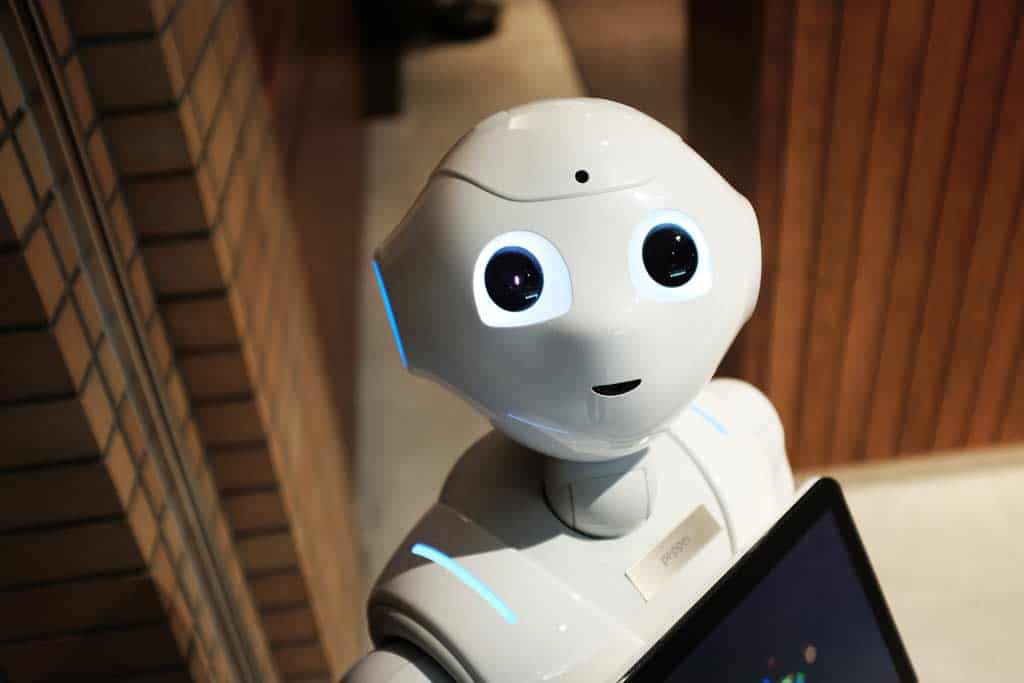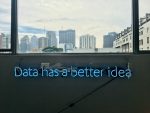Artificial intelligence and machine learning are impacting many areas of work – how will it affect the HR industry?
Innovations like artificial intelligence (AI) and machine learning (ML) promise to revolutionise all walks of human life – and when it comes to the workplace, we’re already making huge strides in implementing these technologies to improve efficiency, productivity and output. This is certainly true in field of human resources (HR).
To contextualise the point, research from PwC shows that 63% of companies are currently rethinking the whole role of their HR department in light of the benefits AI could deliver. At nearly two thirds, it’s clear that organisations are preparing for the AI revolution, which raises the question: how will this technology affect the day-to-day responsibilities of HR departments?
Used as an extension of human capabilities, AI is helping these professionals work better, faster and smarter – and as teams develop fluency in this technology, we’re already witnessing a shift in key responsibilities.
AI will not replace HR professionals
Before we consider the transformations that are already taking place within HR, it’s important to establish one thing – despite some scaremongering headlines, AI is not going to steal people’s jobs, nor does it risk leaving professions like HR redundant. Far from it.
After all, AI solutions are here to extend human capabilities; to make us even more effective. Let’s consider how this could work in practice within HR: day-to-day tasks often include repetitive and time-consuming tasks like processing paperwork (a problem exaggerated in big organisations with a larger workforce) and making sure company policies comply with regulations.
How much easier would it be if we could automate these tasks and leave them in the hands of computers? It’s no surprise that many HR departments are now looking to AI to help them increase workplace efficiency and streamline some of the more tedious business operations; a survey of HR executives by IBM, for example, found that almost half (46%) believe that AI will transform their talent acquisition.
Streamlining recruitment
The cornerstone of HR is arguably talent acquisition – a significant responsibility, considering the importance of finding the perfect candidate for a position.
Rather than having to rely on individual observations after carefully screening a candidate portfolio (including their application, resume, and recommendation letters), HR teams can now use analytical AI tools that collect, process and assess all this information to pick out candidates that would be best suited to a role.
Possessing the ability to screen large numbers of applicants and prospective employees, AI solutions like Ideal can quickly gather a talent pool. Sophisticated algorithms are able to identify talent and match it to an organisation’s needs – whether this is by learning the qualifications of existing employees who are successful in their roles and looking for candidates that closely match these criteria, or else by automatically discarding those whose qualifications do not meet those required for a particular position.
The time and cost saving potential here is evident; what might otherwise take weeks or even months can now be done in as little as a matter of minutes. Indeed, research by Mondal suggests that companies using AI in this way have stood to benefit from a 71% decrease in cost per hire, and a threefold increase in efficiency.
Importantly, once the initial screening has been completed, trained experts are then on hand to focus their efforts on reviewing the best candidates, conducting interviews, requesting references and assessing which individual to hire.
Offering round-the-clock support
After securing a new hire, HR departments naturally become the first point of call when it comes to answering their questions – how and when will they be paid, what is the holiday policy, and are there any employee benefits on offer?
Often, there are a number of standard questions that will need to be answered during the first few weeks; and answering repetitive queries can take up valuable time. Thankfully, increasingly intelligent AI-powered chatbots are here to help offer support to new (and existing) employees when questions arise.
In an effort to drive increased labour efficiencies, reduce costs and deliver an enhanced employee experience, HR departments have embraced tools like ubisend which can handle routine, internal questions at speed – through data-driven analytics, these tools can learn the requests that employees frequently put forward and offer accurate responses based on the infinite stores of company data it can pull answers from.
Moreover, the ML capabilities underlying these chatbots means that they are constantly learning; every time it responds to a request, it gains a better insight into how best to respond the next time around.
Performance management
Excitingly, improving the employee experience doesn’t stop there. In all companies, but in larger organisations especially, it can be easy for employees to feel overlooked or undervalued – so offering tailored support and training is key for boosting morale and ensuring employees are continuously maximising their potential.
Intelligent algorithms have already been employed by HR departments to track the performance of current employees; the data metrics collected (like performance reviews) can be analysed by AI tools to provide HR managers with valuable and systematised insights. In turn, these insights can be measured against performance objectives for each employee to determine their progress and pinpoint any areas for improvement.
It’s then up to HR professionals to create ways to encourage employees to improve – whether this is through tailored training programmes or by setting periodical performance objectives – to give them the mentorship they need to excel in their roles.
The value of utilising AI within HR is obvious; not only does it free professionals from tedious tasks to focus on more valuable aspects of their role, it does so without jeopardising the quality of the work. And as we continue to explore the potential of this technology and work in partnership with machines, it’s clear that the future of HR is both digital and human.






